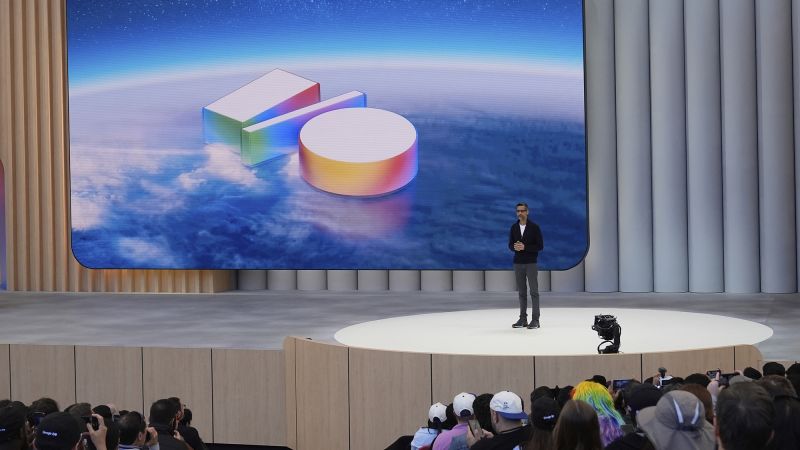In a recent announcement, Google unveiled its ambitious vision for the future of web searching, suggesting that the traditional approach of typing in keywords and sifting through various links and snippets of information may soon be obsolete. This transformation signals a pivotal moment in the evolution of search technology, as the internet giant aims to transition from a mere search engine to a sophisticated system of “digital agents.” As explained by Google’s leadership, this new approach will allow the search functionality to operate with a greater understanding of users’ surroundings, preferences, and tastes, creating a more personalized experience.
During its annual developer conference, Google outlined innovative updates designed to redefine how users search for information online. The announcements come amid rising competition in the tech landscape, with alternative AI-powered search engines like Perplexity and chatbots such as ChatGPT providing novel ways to acquire information. This growing rivalry has spurred Google to emphasize its commitment to staying relevant in an industry edging ever closer to AI dominance. Sundar Pichai, Google’s CEO, articulated the significance of this technological shift, proclaiming that decades of rigorous research are finally materializing to benefit people and businesses globally.
Google is diversifying its offerings through an upgrade to its AI Mode, which previously was exclusive to early testers via its Labs program. This feature will now be available to all U.S. users via the Google app, extending beyond the existing AI Overviews that appear in search results. Unlike the standard search method, AI Mode utilizes a more sophisticated strategy to process user queries by breaking them down into subtopics. This allows Google to tailor responses based on a user’s search history, yielding answers that better align with individual needs and preferences.
Further enhancing user interactivity with the app, AI Mode is set to introduce two key functionalities: task handling on behalf of the user and a visual reinterpretation of search through real-time camera feeds. While AI Mode is generally available, these advanced features are still in the Labs phase, encouraging users to engage more actively with Google through these specialized capabilities. For instance, Google’s Project Mariner technology is designed to automate complex processes; users can request specific tasks like obtaining tickets to events, with Google managing the entire workflow seamlessly.
The technology will facilitate interactions with various services such as Ticketmaster, allowing individuals to buy tickets, make restaurant reservations, or set appointments without the usual hassles of manual entry. Additionally, the introduction of visual search capabilities updates the existing Google Lens tool, enabling users to simply point their phones at objects to inquire about them. This real-time search is a significant leap toward simplifying the user experience, especially for complex tasks that are hard to verbally articulate.
Despite these advancements, there’s a potential for confusion among consumers, as some new functionalities bear similarities to those provided by Google’s existing Gemini assistant. However, Google representatives have clarified that search is primarily focused on information acquisition, while Gemini serves as a utility to assist with more practical tasks like generating business documents and coding.
As Google navigates these developments, it faces mounting pressure from powerful competitors including Apple, Amazon, and Microsoft, all of whom are enhancing their AI capabilities. Reports indicated a decrease in Google search traffic, a troubling trend that the company disputes, emphasizing its sustained growth in search queries across platforms. Market analysts warn that the ongoing proliferation of AI tools could diminish traditional search engine usage significantly in the coming years.
In closing, while Google’s search engine has been a dominant force in online information retrieval for nearly three decades, the advent of AI technologies is reshaping its landscape. Pichai expressed optimism regarding these updates, envisioning a future enriched by proactive and intelligent search capabilities that continually adapt to users’ needs. “What I see ahead is a proactive world, an agentic world,” he stated, indicating that the evolution of Google’s search technology is just beginning and will continue to improve over time. This trajectory not only marks a significant evolution for Google but also sets the stage for how users will interact with digital information in the future, highlighting the shift towards a more interactive, intelligent form of searching.



